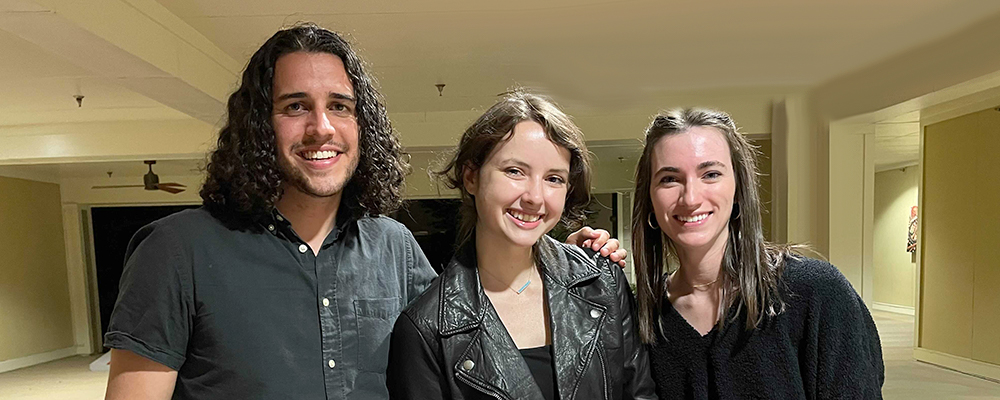One plus one equals two. The sky is blue. NC State has a rivalry with UNC. These are fundamental facts of our existence.
However, many former Tar Heels, such as myself, have set aside their Carolina blue (at least for a while) to pursue NC State’s highly-selective Masters of Science in Analytics (MSA) program. In fact, 14% of the current MSA students have undergraduate degrees from Chapel Hill. Of these former UNC students, nearly 40% have biostatistics degrees, a subfield of statistics that applies statistical techniques to health and medical research.
What is it about the Institute for Advanced Analytics that’s so appealing to these UNC Chapel Hill graduates? I reached out to the following four biostatistics alumni and current MSA students to learn more: Xueyang Li and Jane Williford (class of 2020), Kathleen Dang (class of 2021), and Lexi Bell (class of 2022).




Below are the questions I asked my fellow students, as well as their responses.
Matt: Did you work in the time between graduating from UNC and coming to the IAA? If so, where, and for how long?
Jane: “Yes, at RTI as a biostatistician for two years.”
Xueyang: “I worked at Blue Cross and Blue Shield of NC for 2 years.”
Lexi: “IQVIA for one year, part-time through senior year.”
Matt: How did your experience in the workforce affect your decision to come to the IAA?
Jane: “I knew I wanted to continue my education to be able to do more complex modeling and work with non-clinical trial data, which is popular in the biostat field.”
Xueyang: “Being in the workforce gave me more context for the reason I would want to pursue an MS program like the MSA, that focuses on practical applications. My time working familiarized me with real-world data for business analytics, highlighting the importance of good communication, making thoughtful decisions, and creative thinking. I felt that the MSA would be a good option to enhance those skills I was building in the workplace as well as expand my analytics toolbox.”
Lexi: “[My work experience] made it clear to me that I was more interested in the technical and computational side of mathematics, and not the theoretical, so I was not as interested in getting my MS in biostatistics after my work experience.”
Matt: “What appealed to you most about the MSA program, especially compared to other MS programs?”
Xueyang: “I had heard about the MSA in undergrad and the program structure, coursework, and outcomes were all very exciting and appealing! I felt fortunate to have such a great program very close by in Raleigh.”
Lexi: “I liked the idea of [the MSA’s] practicum… which would funnel me into a real-world project. I also liked how they described the in-house job application process.”
Kathleen: “The hands-on experience, teaching of relevant topics, and use of real-world data [and] problems.”
Matt: “Do you feel like your experiences in UNC BIOS have given you a unique perspective as an MSA student? How so?”
Jane: “I feel like we have a really solid theoretical statistics background, [which] greatly helps in understanding a lot of the more advanced coursework [in the MSA].”
Xueyang: “I would say so! Having done coursework related to public health and how statistics is used in research definitely differs from a lot of other types of STEM training that is done in undergrad. Additionally, it helped to be familiar with some coding languages (SAS) when entering the program, as well as having done the math to back up some of the principles we continue to learn about!”
Kathleen: “[BIOS] gave me a strong foundation in statistical methods but showed me that I love the application side more than theoretical [side].”
The UNC Biostatistics program is growing year after year, and so too is the number of Biostatistics graduates seeking further education. The MSA program (while intense) is completed in just ten short months. The admissions process is happening for the MSA class of 2024, and interested students are encouraged to learn more!
Putting away the Carolina Bue may be painful, but Wolfpack Red isn’t so bad, either.
Columnist: Matt Dinwiddie
